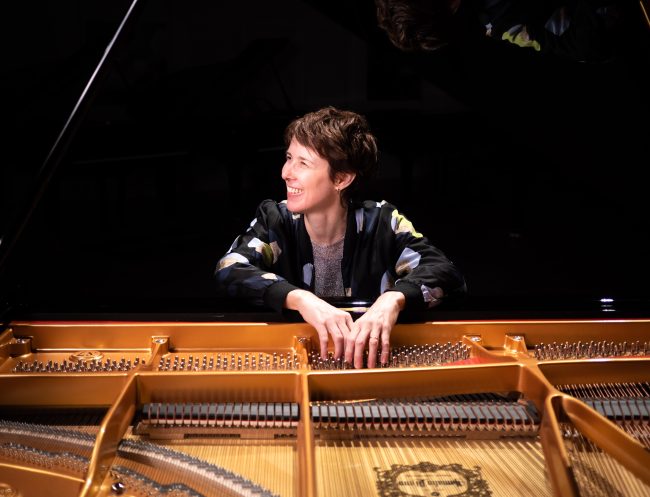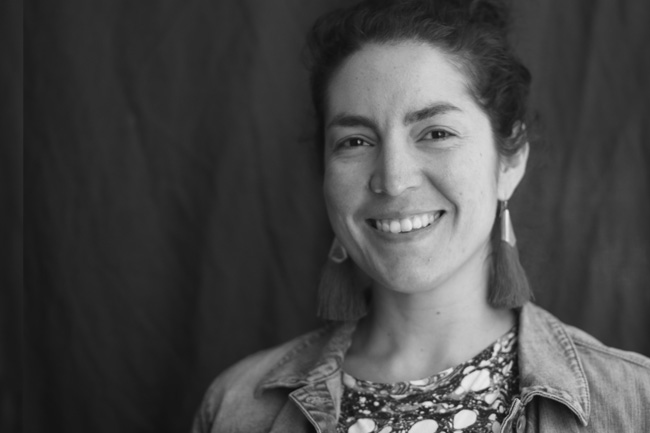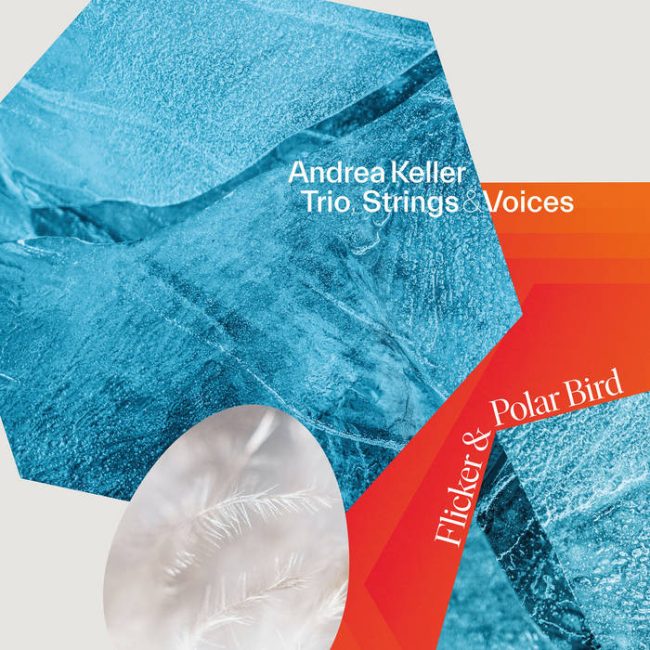Motherhood & Music- Not just the Lullaby
Approx. 8 minute read
The lost story of the indelible Sister Rosetta Tharpe, the undeniable progenitor of Rock ’n Roll, served as the impetus for my Shout Sister Shout interview series back in 2021. I launched Shout Sister Shout on International Women’s Day (IWD); it’s my way to capture and share the stories of the women in Australian jazz, improvised and world music and applaud their contribution and gifts. I want these great women to be remembered! You can check out the Epilogue from my 2021 collection here.
My interview with Andrea Keller back then left me with words that leaped off the screen and into the depths of my mind where they have been steeping ever since. These are her wise words:
“The biggest challenge that has been clearly and perceptibly connected to the fact that I’m female, is the discrimination I’ve experienced because I’m a mother. I don’t think we’ve actually even started talking about this properly yet.”
Andrea Keller, Shout Sister Shout (2021)
Motherhood is a beautiful part of life. It’s been a joy for me to see my sisters and friends become mothers and witness them grow and change over the years as much as their children. I see how they nurture their creativity, excel in their work, live their lives with vibrancy, support their families, face all life throws at them day by day and do all the mundane shit in between gracefully. I can see it’s hard to be a mother – really hard at times. It’s life altering- not much else can compare. This intense life change scares the hell out of me which is probably why I haven’t taken this path myself- but this is not about me (how boring!). Sometimes, I think that society is struggling to see what I see. So maybe, if I share the stories of women I admire we may have a better line of site on what Motherhood & Music entails, it’s not just the lullaby.
Throughout the month of March, starting on IWD on Friday, 8 March, I shall be sharing interviews with world class Australian musicians who happen to be mothers. My hope is to illuminate the joys, challenges, glass ceilings, misconceptions, triumphs, opportunities, complexities and beauty that may be part and parcel of being a musician and a woman who may or may not have chosen to be a mother. What better way to kick off my next interview than with pianist, composer and improviser Andrea Keller, herself. Read on to hear what she has to share about her journey of motherhood and music.

Sonia de Freitas: Hi Andrea, how are you and where does our interview find you today?
Andrea Keller: I’m in Naarm/Melbourne, Australia. It’s been a really busy start to the year with recording, touring, start of university semester, and I’ve just released a piano book too.
SdF: Can you tell me a little more about your life as a mother and musician?
AK: I have three children – ages 25, 15, 12. They’re all musical but I’m not sure that any will pursue music for a living. My eldest plays bass, guitar, and sings and writes songs outside of his regular job (he comes out with some really interesting and cool music!). The middle child has real potential as a singer, but may just end up engaging with music as a hobby. The youngest is possibly the most musically gifted of the three (meaning it seems to come easiest to him), but is more into sport at the moment and is resisting music entirely! They don’t receive any pressure from me regarding music, I just hope they all continue to engage with it on some level, because it comes naturally to them. They just seem to get it and I know how much potential music has to heal and create meaningful connections through life’s difficulties. I also lecture at Melbourne University and am head of the jazz & improvisation degree there, as well as playing gigs, touring, recording, and composing. So, life is busy but always interesting and largely fulfilling.
SdF: What, if anything, may have changed for you in relation to the way you thought about music and your ambitions as a musician once you became a mother?
AK: I became a mother relatively young and I wasn’t yet established as a musician. At the time, I was clear that I wanted to do both so I just muddled my way through, trying to find ways to make it work. I don’t see myself as being particularly ambitious or clear about my path or where I want to end up. I’ve just been spurred on by an unrelenting desire to get better as a musician and to dig deeper and deeper and discover all that I can about music. It probably sounds dramatic, but I don’t think I could survive without making music, it’s never been an option for me to stop. With each baby I had a feeling that I needed to push back against people’s assumptions that I would stop playing and making music and make it clear to them that I was still here, still a musician, still needed to make a living.
SdF: How does the experience of motherhood influence your creativity and composition process?
AK: I’ve had to become very succinct, clear on priorities, organised, quick, un-precious, know when to step back to make slow decisions, and know when I just need to get in there and make decisions fast. I always feel in a rush, always feel like it’s not quite where I want it to be. I always feel short of time, like I’m chasing my tail, and wonder, “if only I had stretches of hours/days/weeks at a time”. I actually don’t think that would make things feel or work any better.
SdF: How do you maintain your artistic identity and career trajectory while raising your children?
AK: I work on both regularly, often only in spurts but daily, weekly, monthly, annually. I have rituals and commitments I’ve made to myself and I see them as sacrosanct. This is in relation to both music and family. I aim to give my attention fully to whatever is in front of me. I think ahead, but not too far, I make plans and follow where my interests take me.
SdF: What challenges have you faced in balancing the demands of motherhood with the demands of a music career? Conversely, can you share any unique opportunities brought about by motherhood?
AK: The biggest demands relate to being time poor and regularly feeling utterly exhausted (this has gone on for decades). I wake very early, but I don’t necessarily go to bed early. I work long hours, and I struggle with feelings of guilt for not practicing enough, and also for not spending enough time with my husband and kids. Engaging fully in the moment helps me worry less about this. I know I’m doing the best I can, but missing a birthday or organising a significantly delayed birthday party due to touring never fails to deal out the guilt!
Conversely, the unique opportunities that have eventuated, are that I often get to tour with my husband and kids (if not all of them, then one or two at a time) and we have so many great memories from being on tour together. If we could live our life, as a family, on tour, it would be akin to heaven for me! I’m grateful for the opportunity to supply our kids with these invaluable experiences.
SdF: What role do societal expectations and stereotypes about motherhood play in shaping the public perception of musicians who are mothers?
AK: It feels like it’s a battle to be a mother with multiple kids and also juggle a performance career. I’ve been really surprised at some of the attitudes, those that even come from other women/mothers (generally arts workers, not artists themselves). When the kids were babies, I definitely had some tough times, expressing milk in a back room hoping no-one would barge in, feeding a baby side of stage and having to leave before they’d finished, being told I wasn’t getting booked for a tour because they (assumed) I wouldn’t be able to organise my life and kids to make it happen. It’s gotten easier as the kids get older, but when they were little, it felt like I was up against the odds most of the time.
SdF: How can the music industry evolve to better accommodate the needs of musicians who are navigating the intersection of motherhood and their music careers?
AK:I think it’s great that people are actually talking about it now! That’s a really great start 🙂 Conversations, sharing experiences and tips, understanding what it’s like for people and then self-reflecting on our own behaviour and actions in this space will lead to more supportive attitudes and actions. It would be great to be able to make demands aligned with what mother’s are offered in standard work places, but working as a freelance artist in the music (jazz) industry is like fending for your life in the Wild West – it’s just not realistic to expect organised, standardised support.
SdF: What do you want for the future of music and for your children?
AK: I value creativity, trying new things, making deep connections and sharing experiences. I know that music and musicians will continue to deliver on these values. I hope that my kids will find ways of being in the world that reflect their true selves, enable continued growth and make them feel valued and connected to people and the world around them.
To learn more about Andrea Keller visit: andreakellermusician.com
To hear and purchase Andrea Keller’s music visit:
andreakeller.bandcamp.com
andreakellermusician.com/store
For more information on International Women’s Day visit: internationalwomensday.com

Photo credit: Cathy Kirkpatrick
Keep an eye out for my next interview in the Shout Sister Shout: Motherhood & Music – Not just the Lullaby series where I interview Thea Rossen.
Did you miss the previous Shout Sister Shout series? Read the Epilogue of the 2021 series here.
Thank you to Eastside Radio for making the Shout Sister Shout: Motherhood & Music – Not just the Lullaby interview series possible.
I acknowledge the Traditional Owners of the many lands on which I am privileged to work, learn, teach, create and perform. I extend my respects to all First Nations People.
